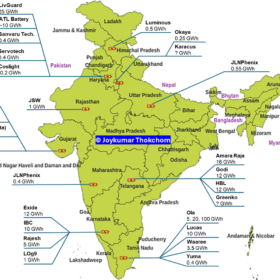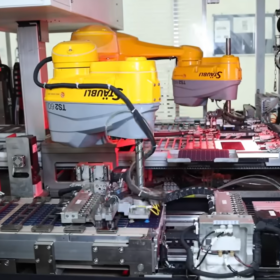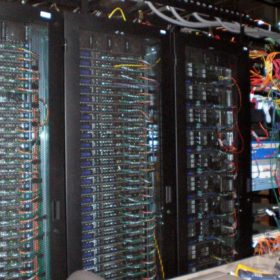Tabreed India, in collaboration with the Bureau of Energy Efficiency (BEE) and Deutsche Gesellschaft für Internationale Zusammenarbeit (GIZ) GmbH, hosted the regional workshop, ‘Cooling India’s Cities’, in Amaravati, Andhra Pradesh.
This insightful event formed part of a Memorandum of Understanding (MoU) between Tabreed India & GIZ, under the latter’s ‘Energy Efficiency Cooling’ programme, jointly implemented with the Bureau of Energy Efficiency (BEE), Ministry of Power. It brought together diverse stakeholders from the government, industry and academia, to explore opportunities and address regulatory and operational barriers to facilitate adoption of District Cooling in the greenfield capital city of Amaravati and the broader Andhra Pradesh state.
Under the visionary leadership of its Hon. Chief Minister, the State, through Andhra Pradesh Capital Region Development Authority (APCRDA), signed India’s first Public-Private Partnership concession with Tabreed in 2019 to develop a 20,000 RTs[i] District Cooling System for the government complex area within the planned capital city of Amaravati[ii] . The partnership agreement for the concessions saw Tabreed commit to designing a facility and network that would deliver electricity savings of up to 50%, providing sustainable cooling services to prestigious buildings such as the High Court, the Secretariat and others. After being stalled for the last several years, the development of the much-anticipated capital is gaining fresh momentum under the new administration, providing a perfect backdrop for this event hosted by Tabreed India and its partners.
The workshop began with welcoming remarks from Mr. Piyush Sharma, Energy Advisor, Energy Efficiency Programmes, GIZ India “GIZ is working to drive the adoption of sustainable cooling technologies as part of our broader strategy for energy efficiency and urban sustainability. District Cooling systems are integral to this effort, offering cities a way to balance growth with environmental responsibility.”
United Nations Environment Programme (UNEP), in 2019, announced Amaravati as a pilot city of District Energy in Cities Initiative to provide lessons for the anticipated national District Cooling Hub with Bureau of Energy Efficiency, which is supported by UNEP and GIZ India.
The state anticipates peak power demand to rise by 57%[iii] reaching 19.9 GW by 2029, driven largely by increasing demand for cooling. Integrating district cooling into the new industrial policy, which aims for accelerated economic growth by driving energy efficiency and adoption of green energy solutions, can support the state’s broader sustainability targets. This approach will not only optimise energy use but also align with Andhra Pradesh’s ambitions to leverage renewable energy and smart infrastructure, setting a benchmark for sustainable urban development across India.
During the roundtable, moderated by Mr. Sudheer Perla, Managing Director, Tabreed Asia, and Mr. Piyush Sharma, Energy Advisor, GIZ India, the discussion focused on catalysing district cooling systems in Amaravati for both existing and upcoming industrial clusters in the state of Andhra Pradesh.
Mr. Sudheer Perla said that “Amaravati’s vision as a greenfield capital balancing environmental stewardship and equitable growth provides the perfect opportunity to implement District Cooling to leverage the circularity benefits it can offer. Through the potential case studies we have assessed for the region including the capital of Amaravati, District Cooling presents a USD 5 billion investment opportunity through reduced power load and energy consumption. Amaravati has the potential to become a lighthouse city for sustainable urban development across Andhra Pradesh and the entire country.”
Participants collectively emphasised the potential for District Cooling to meet the State’s growing cooling demands in a sustainable manner through an enabling regulatory framework which integrates cooling into the urban planning process with pre-feasibility studies, collaborative business models (such as PPP) and more training and awareness programmes. The workshop culminated in a shared vision of cementing Andhra Pradesh as a leader in the adoption of District Cooling technologies, to become the most energy efficient State in India by 2028.





